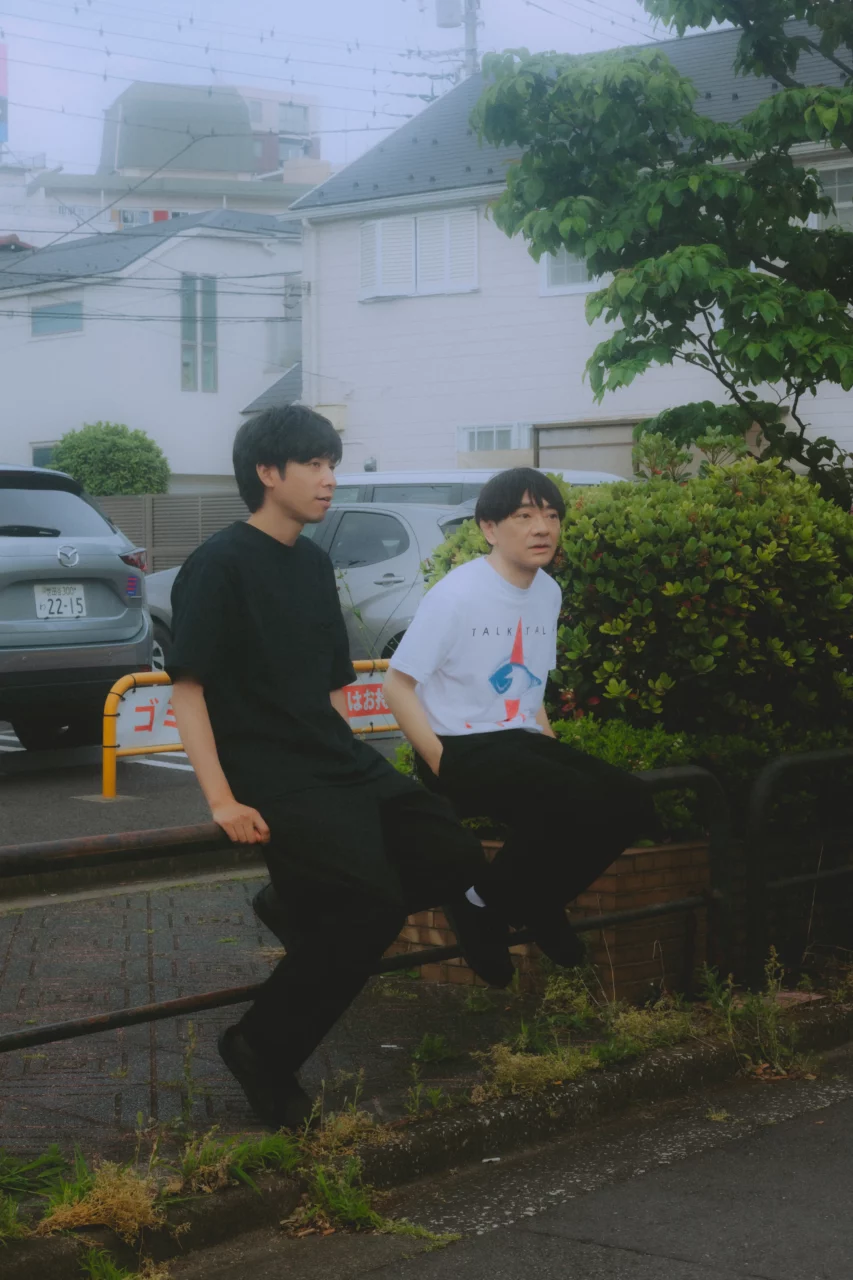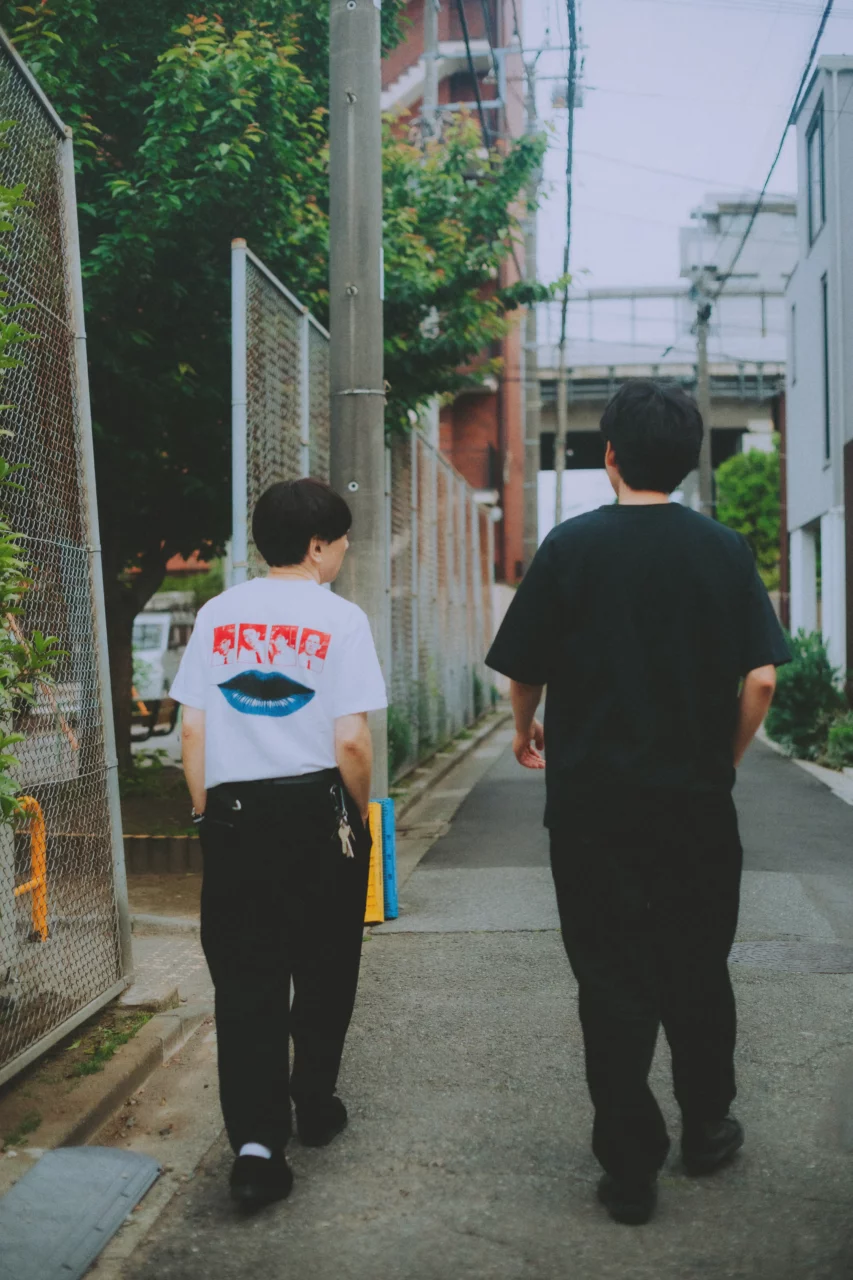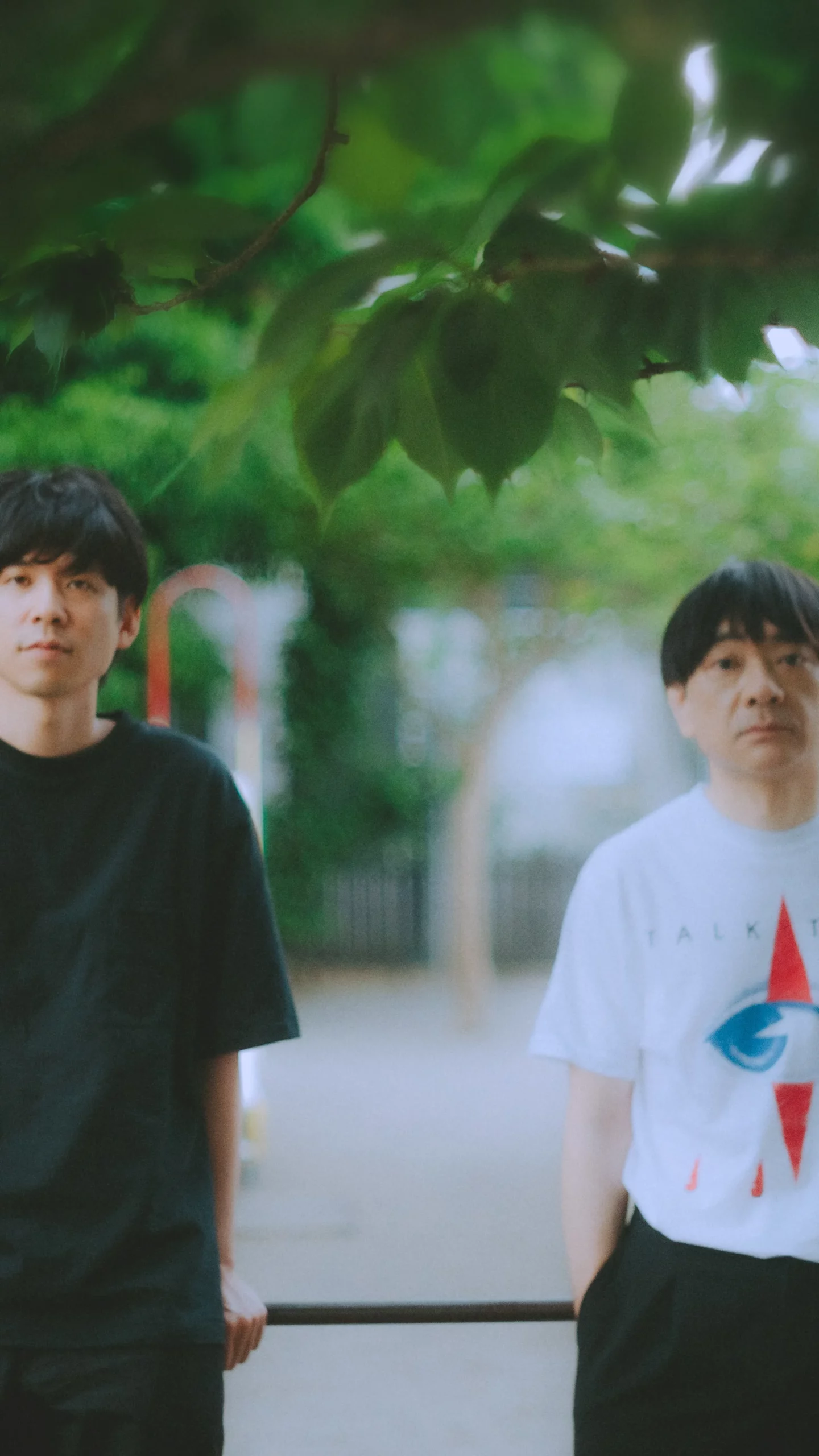On June 7, OGRE YOU ASSHOLE will host their event “DELAY2025” in Hara Village, Nagano Prefecture. This quiet mountain town is where the band is based, and for one night, it will become the center of something extraordinary. The lineup includes OGRE YOU ASSHOLE themselves, the long-awaited return of D.A.N. after a period of silence, and the ever-inventive Cornelius.
It is a dream lineup, but what makes it especially exciting is that this will be the first time OGRE YOU ASSHOLE and Cornelius appear together. For many fans, the news alone is enough to stir a quiet thrill. At the same time, it may raise a few eyebrows. These two artists feel close yet somehow distant, their music echoing across similar landscapes while never quite occupying the same ground. Or perhaps they do intersect in unexpected ways.
What connects them, and what keeps them apart?
What follows is a rare conversation made possible through the strong insistence of our editorial team. As the two artists reflect on how they first met, the paths their music has taken, and their personal takes on the idea of psychedelia, the dialogue begins to stretch into something broader. Without quite meaning to, they find themselves in a deep exchange about artificial intelligence and the profound changes it is quietly bringing into the world.
INDEX

Tracing the Threads Between OGRE YOU ASSHOLE and Cornelius
You’ve known each other for a while, right?
Oyamada: I think the first time we met was over ten years ago. OGRE YOU ASSHOLE (hereafter referred to as “OGRE”) played at MDT Festival 2013 at Hibiya Open-Air Concert Hall, the same show where I was supporting salyu×salyu.
Deto: That’s right. But we didn’t really talk much that day. In terms of actually sharing a stage, the upcoming “DELAY2025” in Hara Village will be the first time since then.
Oyamada: Yeah, that sounds right. After that, we ran into each other a few times—like at Shintaro Sakamoto’s show, or when I went to see Yo La Tengo’s Japan tour where he [Deto] made a guest appearance. We ended up chatting at the afterparty.
Keigo, were you aware of OGRE even before that Hibiya show?
Oyamada: I think the first time I heard about them was through Yo Ishihara, who was producing OGRE at the time. I’m pretty sure it was the video for “Rope” that I saw.
The visuals were an homage to James Whitney, a pioneer in early computer graphics. The whole thing—music and all — left a strong impression on me. Ishihara and OGRE, was that the first project you worked on together?
Deto: He had actually been involved with us since the “A child that gives the unknown sign” EP in 2008, but back then we were still figuring each other out. It wasn’t until “homely” in 2011, the album that includes “Rope,” that we really started getting into the kind of music Ishihara-san had been listening to. That’s when he began producing us on a much deeper level.
Yo Ishihara produced OGRE YOU ASSHOLE from 2008 to 2015. He is also known for his work with his own bands White Heaven and The Stars, as well as producing for Yura Yura Teikoku.
Keigo, when did you first connect with Ishihara?
Oyamada: I think it was more than 15 years ago. We both played at a DJ event that Shintaro Sakamoto invited me to, and that’s when we started talking more regularly. We actually never crossed paths back in the 1980s. Ishihara-san was working at Modern Music in Meidaimae at the time, right? I used to go to ZEST more often, so you could say we were moving in slightly different circles.
Almost like one side was “underground” and the other was more “indie.”
Oyamada: Yeah, it kind of felt like that. I did stop by Modern Music once in a while when I was in high school. They would push all the avant-garde stuff front and center, while the more pop-leaning new wave records were being sold off for cheap in the corner. That contrast was kind of funny. Thinking about it now, there’s a good chance I ran into Ishihara-san back then—as a customer talking to the guy behind the counter.

Deto, when did you first find out about Cornelius?
Deto: There was a store near my house that sold a lot of US indie CDs, and when I was in high school, I bought a compilation from Matador there. That’s when I realized that Cornelius, who was on the compilation, was apparently Japanese.
Oyamada: Oh, so it was through Matador?
Deto: Exactly. After that, I immediately bought FANTASMA (1997). When I listened to it, I thought, “This is really cool.” Then I also got POINT (2001) and the music video collection FIVE POINT ONE (2003) as they came out. When I was in college, I watched the DVD and thought, “So this is what psychedelic means…”
Matador is a prestigious indie label based in New York, known for releasing works by Pavement, Yo La Tengo, and also Japanese artists like Cornelius, Pizzicato Five, and Guitar Wolf.

























